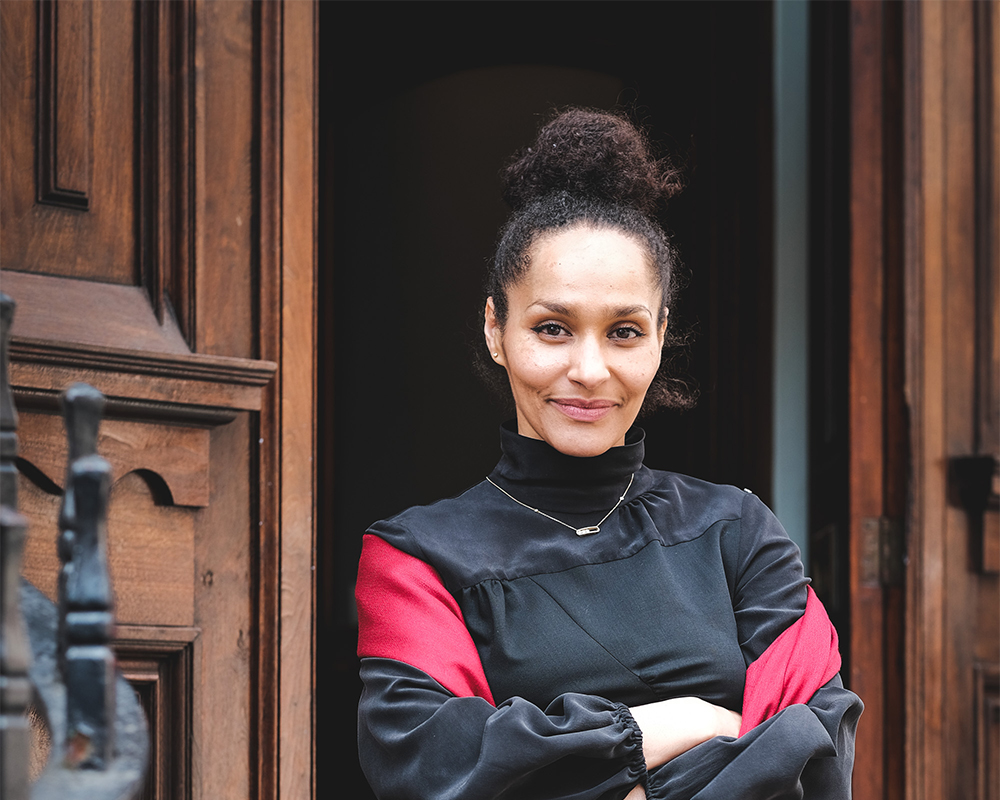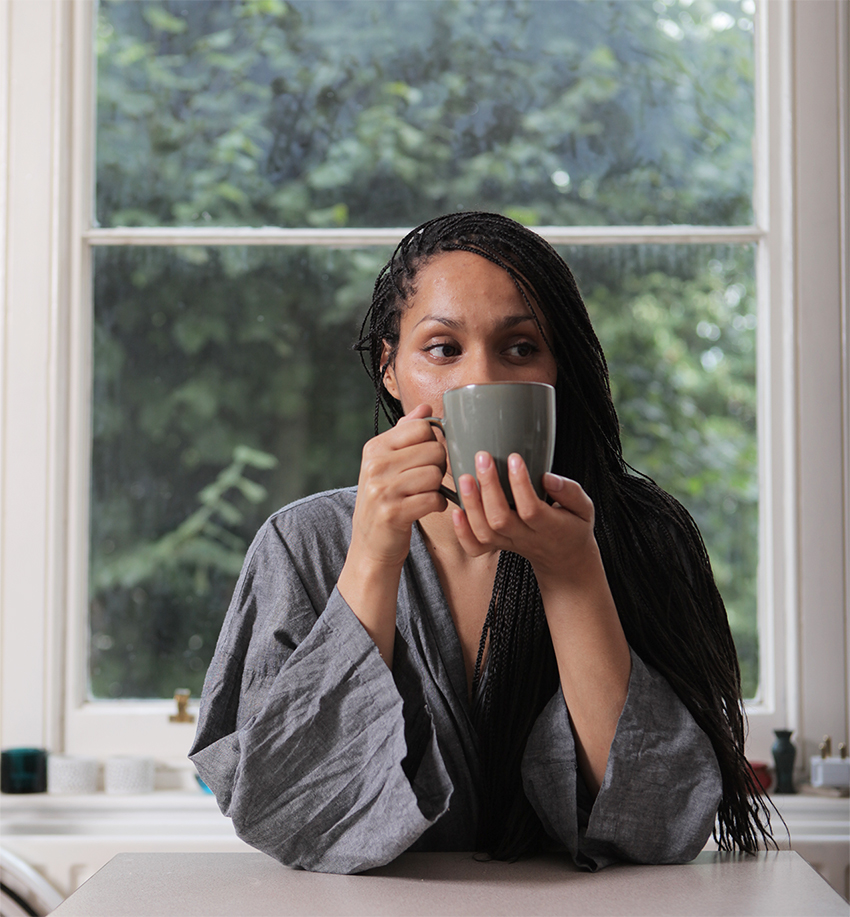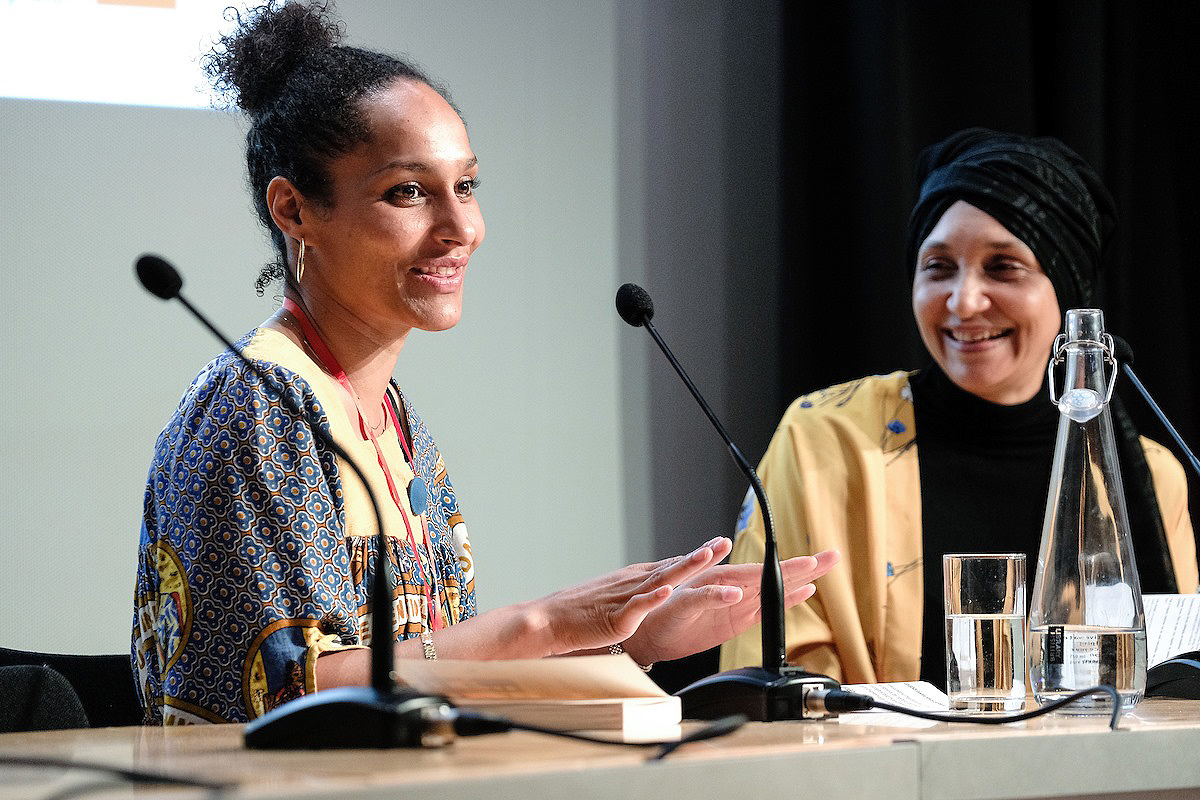Interview by Visual Collaborative
June 2020 8 min read

Sheila Ruiz, based in London, is Deputy Director at the Royal African Society, where she focuses on organizational development, partnership-building, and acts as the cultural head for the charity. She has over 15 years’ experience working in the cultural, not-for-profit sector, most notably promoting Africa and its Diaspora. Sheila is of Spanish and Equato-Guinean heritage and is bilingual in Spanish and English. With a passion for music and dance, she has performed with several groups, including the Afro-Cuban London Lucumi Choir. As a feature in our Oxygen interview series, Sheila talks to us about the Royal African Society, her industry perspectives on current affairs, and gives some insights into what inspires her in life.
(VC) Outside your work as Deputy Director at the Royal African Society, who is Sheila Ruiz?
(Sheila) A mother, a sister, a friend; a woman with an open heart and an inquisitive mind, who strives to grow and learn something new every day; an Afropean ; a humanist; a feminist; an LGBTQ ally; an art lover; a wannabe singer and dancer (in my next lifetime, I want to be a jazz singer and a flamenco dancer) [Sheila exclaims]. A collector of life treasures; a facilitator of love and joy; a hopeful and gentle soul.
(VC) Your industry, like many others, was inevitably affected by COVID-19, what kind of long-term impact do you see happening in the not-for-profit sector?
(Sheila) As a result of the COVID-19 pandemic, the not-for-profit sector has already seen a significant decrease in funding from both public and private sources. There have been a number of emergency relief funds set up, which is good, but the majority of project-specific funding has been put on halt until further notice. Another major shift for charities like the Royal African Society, which predominantly focuses on public engagement through events, has been the move to online. Moving forward, I imagine that all nonprofit organizations will integrate a much stronger online component in how they deliver their programs and/or services, and they will also need to find creative ways to diversify their funding base, including new avenues of income generation.
As with all crises, the current pandemic has presented major challenges, but also opportunities to do things differently. For example, at the Royal African Society, we seized this window of opportunity by creating the first-ever Coronavirus in Africa tracker and increasing our coverage of the pandemic on African Arguments, our online platform for news analysis, comment and opinion. We have also started to host all our events virtually, and aim to launch a new digital offer for Film Africa, our biennial festival celebrating the best contemporary African cinema, which has traditionally just consisted of live screenings and events. So I think the crisis has certainly opened a path to trial new models, develop ideas, and forge new partnerships.
Whatever it is, can you deliver? From my experience, any successful partnership must benefit all partners involved, and ideally in equal measure. A successful partnership will also require trust, which is built over time, and clearly communicated deliverables and expectations
(VC) As a woman in the United Kingdom, what can you candidly tell aspiring young women about partnerships and business risks?
(Sheila) I don’t feel qualified to give advice on business risks, but I will happily talk about partnerships as that is at the core of all of the work I do. I think if you work in the not-for-profit sector, a lot of your achievements will be down to the success of your partnerships – whether that would be with a corporate sponsor, a project delivery partner, or a marketing partner – so my one piece of advice for aspiring young women or anyone wanting to get into this space would be to hone in the skills of partnership-building and win-win negotiation. The key here is to aim for mutually beneficial partnerships. Whenever you enter into a partnership, ask yourself: how will it add value to your prospective partner/s? What do they stand to gain? Is it brand visibility, reaching a new audience, or tapping into new insight or expertise? Whatever it is, can you deliver? From my experience, any successful partnership must benefit all partners involved, and ideally in equal measure. A successful partnership will also require trust, which is built over time, and clearly communicated deliverables and expectations.

Sheila Ruiz at home in London. Photo by Jon Devo
(VC) What is your go-to approach or practice today in terms of claiming your creative power of inspiration and imagination?
(Sheila) I find I can better unleash my creative power either when I am at peace within myself and my environment, or when there is a specific issue or problem that I want to tackle – whether on a personal, professional or social level.
My weekly practice currently consists of a combination of physical exercise and internal reflection, which used to happen during my walks on my commute to and from work (before lockdown), or just before I fall asleep or as I am waking up. I find I can really tap into my imagination in those moments of half-alertness when my conscious and subconscious minds mingle, connecting feelings, thoughts, and ideas much more freely. I am also hugely inspired by other human beings and I gain a lot of perspective by talking to my loved ones, or sometimes even to complete strangers I meet on the streets of London! In the context of work, I tend to develop ideas by brainstorming with the rest of the team, or when I am in a state of flow working on my own.
I have realized that the past few months of lock-down due to COVID-19 have given me a welcome space to be much more introspective, and also more present in the moment. This has put me in a very grateful and peaceful state of mind, so I plan to carve out space in my busy schedule to continue doing this inner work moving forward.
(VC) A perfect world does not exist, but if one did what core values would Sheila make a staple in the community?
(Sheila) In my utopian world, there would be equality, freedom, and justice for all human beings on earth; capitalism would be replaced by a more just economic system, which would include Universal Basic Income, and free healthcare and education for all; wildlife and the environment would be respected and the climate crisis reversed; and citizens all over the world would exercise their voice and power through semi-direct democratic systems. On a deeper, personal level, all human beings would experience love and acceptance from the moment they were born.
(VC) Some mention different historical times as a period they admire for affluence or culture. If you could time-warp to any era to collaborate with its culture, what period would it be and why?
(Sheila) If I could, I would love to travel back in time to two different eras – the 1920s and the 1960s. Following the horrors of World War I, the 1920s were an amazing decade of creative discovery and freedom in the West, which women could publicly take part in for the first time. I love the iconic women’s fashion of the time; in the US, there was the blossoming of jazz and African-American culture; and artists from different parts of the world pushed boundaries to unchartered territories. The world also felt like it was globally connected for the first time. I imagine traveling to Mexico City to attend an exhibition by a young Frida Kahlo, or to Paris to see a performance by the powerful Josephine Baker [Shelila exclaims]

The 1960s are also an appealing historical period for me as that is when a lot of African nations’ hard-fought struggles for independence succeeded. And in the US, you had the civil rights movement in full swing. I would have certainly supported both movements and felt really exhilarated to be a part of such significant historical shifts. The general optimism and political empowerment of the youth during the 1960s must have been a real inspiration, and the music of the time was simply sublime! Who can resist dancing to James Brown or Fela Kuti?
(VC) At this stage of your collective accomplishments, if you could work alongside any public figure, brand, or enterprise. Who would it or they be, and why?
(Sheila) To make it easier for me, I will answer this question in relation to Film Africa specifically, which is currently top of my mind. In terms of public figures, I would nominate London-based actors Chiwetel Ejiofor, Naomie Harris, and John Boyega – I would love to ask them all to become patrons of Film Africa and champion the festival. In terms of brands, it would be great to find a VOD streaming platform covering the continent, as well as a corporate sponsor that aligns with our values. Ideally, we would work with both through a multi-year partnership to ensure the future success and sustainability of the festival and widen its digital reach into the continent. So if anyone reading this fits the bill and is interested, please do get in touch!